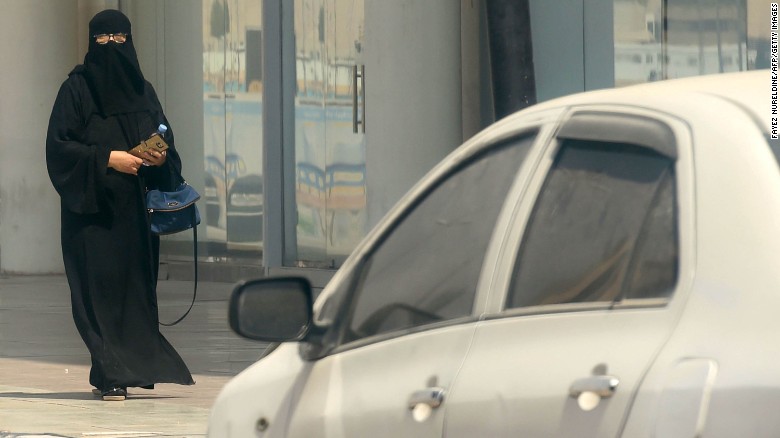A Trend? Never Too Late
 |
| A Saudi woman walks near car down a street in the Saudi capital Riyadh on September 27, 2017. CNN |
"Life will be faster.""I live in a country that I can't explore. I've always wanted to explore the kingdom's coasts... I can't take someone I don't know to drive me to these places and my brothers are too busy to take me on long trips."Nouf Alosaimi, 29-year-old diving instructor, Jeddah, Saudi Arabia
"[Being allowed to drive is a] very important step. [However, there is still a long way to go for Saudi women].""This prohibition on driving is just one in a vast series of laws and policies which prevent women from doing many things.""The guardianship rule stops women from making every decision in her life without the assistance of a male relative, even if that relative is her 7-year-old son."Liesl Gerntholtz, executive director, Women's Rights Division, Human Rights Watch
Yet, consider this: in Saudi Arabia women are expected by cultural tradition and religious authority to be 'modest' in public. And modest in Saudi Arabia translates to wearing a niqab or a burqa; long, dark flowing robes completely covering a woman's body is de rigueur as is permitting only the eyes to be seen, the face and hair covered. This is a desert kingdom, it is hot and uncomfortable to wear such restricting garments. And how outlandish it looks to Western eyes to see a woman garbed in such a manner, driving.
The safety element is another consideration; wearing a niqab how well can a woman practise road awareness? Long flowing robes present a potential threat of entanglement and injury. To confine a woman in such a manner to satisfy a patriarchal society that bristles at viewing women's skin or hair as a breach of conduct that reveals a woman to be indecent, is the hallmark of a truly backward society.
Nowhere in the new announcement is there set out whether or not a woman will have to secure the agreement of her father, her brother, her uncle, her son, to allow her to drive.
That agreement is fundamental to anything a Saudi woman attempts to do, from leaving the country, taking a trip, signing legal documents, or being in the company of non-family males. The ban on driving is finally to be altered under a formal royal decree. "Praise God", said Loujain Hathloul, responsible for the women's right to drive movement, who was incarcerated for 73 days for her impudence in driving a car in 2014.
Conservative Saudi clerics whose influence on the judiciary is vast, have warned that permitting women to drive would have dire consequences, corrupting society and inevitably leading to degradation. Women have been arrested and sentenced to receive lashes in the past. A prominent cleric had made the assertion that medical studies had shown that a woman's ovaries would be damaged by driving a car.
If Saudi woman want to marry they must have permission from a male 'guardian'. A guardian, despite that a woman would be of mature years, capable of asserting her independence, and free choice; not free, not independent. They cannot rent an apartment without the guarantee of a guardian, nor file legal claims. "We all have to live in the borders of the boxes our dads or husbands draw for us", stated 25-year-old Zahra, a Saudi woman.
King Abdullah in 2013 stated his intention to extend a number of freedoms for Saudi women and in 2014 women were given permission to legally vote in and run for office in municipal council elections. Yet women in Saudi Arabia have a higher attendance rate than men in colleges. With the ascension of Crown Prince Mohammed bin Salman, 32 years old, the kingdom's overhaul of its economy and society (and military decisions) are taking place.
Labels: Female Subjugation, Saudi Arabia

<< Home